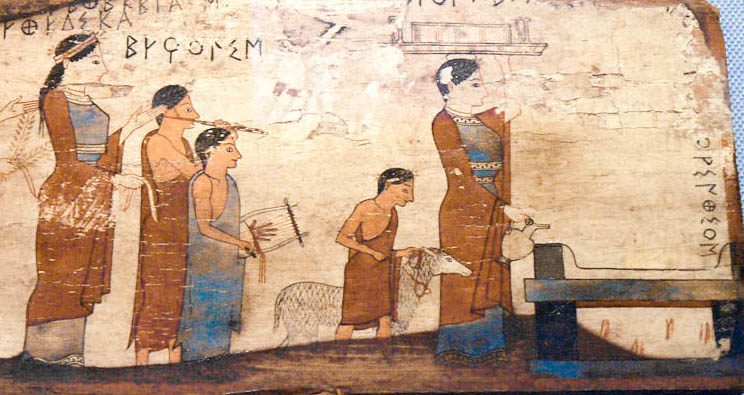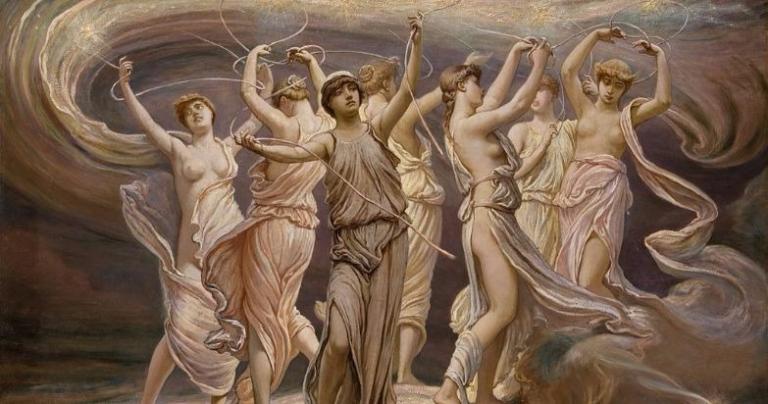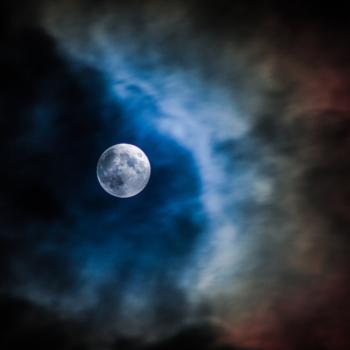A while back someone forwarded to me an entry from The Times Literary Supplement written by the renowned classicist Mary Beard entitled Paganism Without the Blood. The entry made me laugh; it also annoyed me. The opinions stated by the author demonstrate the level to which fantasy exists in the minds of academics, and their limitations when it comes to living polytheistic religions, specifically Hellenism.
Beard opens the entry with the following, “[o]ne of the good things about working on ancient “pagan” religion is that no one actually believes in it any more.” Beard explains there is relative ease with debating paganism because there is little chance someone will become upset: “you’re not always looking over your shoulder at a community of contemporary believers.” This allows her to make controversial statements regarding paganism without fear. True, our numbers are low. It is less likely you would run into one of us, but we do exist, an existence which Beard does acknowledge but is quick to dismiss.

Beard mentions that a group of Greeks in Athens had gone to the Temple of Olympian Zeus to pray for world peace and to celebrate the sacred marriage of Zeus and Hera. Beard does not fear the presence of Greeks practicing the ancestral religion because whatever it is that the Greeks are doing today, “it bears very little relationship to ancient Greek religion.” Beard’s main complaint with our religious practice is the lack of animal sacrifice as she asks “where was the animal sacrifice?” Beard asserts that animal sacrifice was “the key centre of the whole religious system.”
Beard closes with the following statement: “Until these eager neo-pagans get real and slaughter a bull or two in central Athens, I shan’t worry that they have much to do with ancient religion at all. At the moment, this is paganism lite.”
Firstly, I hope Ms. Beard has evolved on this topic and has done her research on Hellenism as the living tradition it is. It is not a reconstruction nor a neo-pagan movement. Secondly, if this statement from 2007 still holds true, I’d like to try to make a case for how this belief is incorrect. Thirdly, the ancestral Greek religion gained state recognition and protection by the Greek government in 2017. (The group which Ms. Beard refers to in her 2007 statement were not members of the current state recognized religion.)
While animal sacrifice was certainly widespread and important in the ancient world, some people did reject it. Great figures such as Orpheus and Pythagoras rejected animal sacrifice. These were not minor figures in Greek history by any chance. To ignore their contribution is a mistake.
The Supreme Council of Ethnikoi Hellenes’ official position concerning sacrifice is that it is no longer needed given the world we live in with supermarkets and packaged meat. Along with the religious purpose an animal sacrifice had, it also had a practical purpose, a purpose which has found itself obsolete in our time. As such, bloodless sacrifices are the preferred option and are in harmony with our tradition.
Our religion is not alone in ending the practice of animal sacrifice. This brings me to my main argument, which I pose to Ms. Beard. According to your standards, the Greek religion as practiced today fails to fulfill the ancient practices to your satisfaction; thus it is “neo-pagan” or “paganism lite.” Are you willing to do the same for other religions? Christians do not perform animal sacrifice, ending the Jewish practice, claiming Jesus’s death was the “perfect sacrifice.” Let’s take this one step further and say that any Christian tradition after the reformation should by Beard’s standard be Neo-Christianity, since they purged the religion of centuries of well-established traditions in an attempt to “correct” the religion. Without the temple in Jerusalem, Jews can no longer perform animal sacrifices, so is Judaism today less valid? Shall we call these traditions Christianity lite and Judaism lite?
Why must Hellenism conform to so-called ancient “standards” (set by the classicists) in order to be valid, when contemporary practices do exist in the ancient record? I think the issue stems from the idea that Hellenism eventually faded away. Any public expression of Hellenism is then suspect in the eyes of academia. Hellenism never entirely disappeared; a continuity exists no matter how silent it may have been all these years. Unfortunately, scholars cannot fully accept this continuity, and it does not matter. Let them live in a fantasy of what they think Hellenism is and leave our community to the activity of living Hellenism. Scholars do not define nor can they give validation to religions. They cannot do so for Hellenism.
Lastly, I’d like to pose to be Ms. Beard, and any classicist reading this:
“Clearly you love the ancient world. If you did not love it, you would not be passionately teaching, promoting and benefiting from it. Why do you not support the revival of Hellenism? Why not be a champion for the public return of a persecuted tradition, which fought for religious freedom in its native birthplace? You could help us, be our ally, help the world accept us once again.”
Sadly, such goals may not be in the interests of scholars like Mary Beard, who are happy they need not look over their shoulders to find a community of contemporary believers who will get in their way.


















